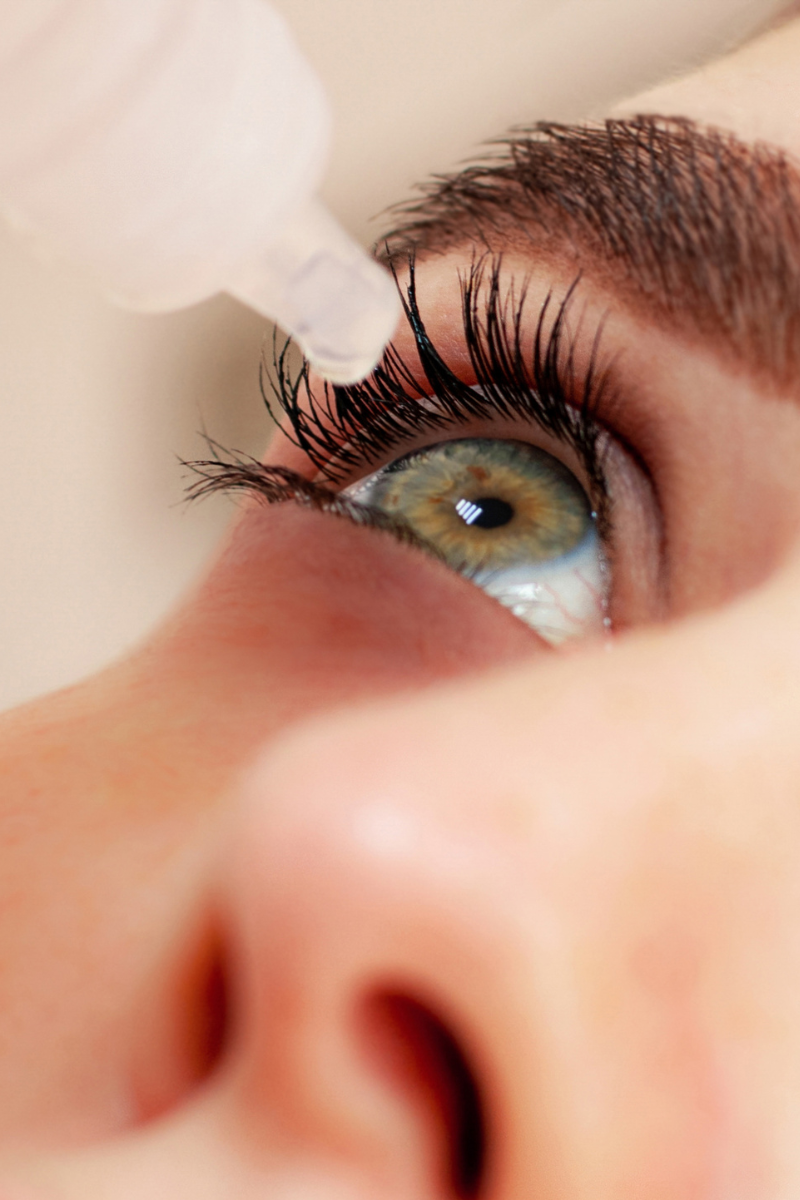Have you ever wondered - “Why?!” Why do people over 40 need reading glasses? Especially if you have never had issues with your vision before, it can be extremely frustrating.
The answer is presbyopia. Just like everything else, the lens in our eye loses elasticity. As we age, the lens loses the ability to see up close as a result of this. Sadly, there isn’t anything we can do about this and it happens to just about everyone after the age of 40! At least we aren’t in it alone.
What is Vuity and how does it work?
Vuity is a drop containing pilocarpine - 1.25%. Pilocarpine makes your pupils smaller. If you want the fancy terms, it is a cholinergic agonist. Meaning, it binds to the muscarinic acetylcholine receptors. This decreases the peripheral light rays making it easier to focus. This is called the pinhole effect (get it? It causes your pupil to be the size of a pinhole). This is like the eye examination you receive at the eye doctor where you look through the black paddles with the tiny holes so your eyes can better and focus.
When was it first used and is it safe?
It has been around for a while, dating back to the 1800s! It was formerly used to treat glaucoma. It was used for glaucoma because pilocarpine actually decreases the amount of fluid in the eye. Today, it isn’t a common treatment for glaucoma because of the potential side effects. In the 1970s, it was found that retinal detachment and uveitis could happen. The major difference between using this drop for glaucoma and using it as Vuity is that Vuity is only used once a day. When this is a treatment for glaucoma, it is often a higher percentage of pilocarpine (ranging 1%-4%) and used frequently throughout the day(1-4 times). Unfortunately, it's now been discovered that using Vuity, at the more dilute strength, may still cause retinal detachments.
Is it FDA approved and was it tested?
Yes! It was approved by the FDA in October 2021 to be used as Vuity. There were two 30-day trials conducted. The first trial was called “Gemini one” and the second trial was called “Gemini two”. There were 750 participants that were all aged 40-55. The participants in the trials used one drop per day. They did not know if they were using a placebo or an actual Vuity drop. Their end point was to see if participants reading improved by three reading lines on the chart used for eye examinations. They also wanted to ensure that participants did not lose more than one line of distance vision. In Gemini one, 31% of people had a vision improvement of three lines on the eye chart. Among the participants using a placebo, 8% reported vision improvement. In Gemini two, 26% of the participants using Vuity reported vision improvement whereas 11% of the participants using the placebo reported vision improvement.
The main takeaway of this study is that it did seem to improve some of the participants’ vision in the groups that used Vuity daily. However, it did not help 100%. It won’t help everyone. But it should help about a quarter to a third of the people that use it.
Side effects:
Headaches - about 14.9% of people that took the drop experienced headaches.
Approximately 5% of the participants experienced the following side effects:
- Blurred vision
- Irritation
- Red eyes
- Decrease in vision
- Retinal detachment
- Difficulty seeing in the dark – when it is darker, your pupils get larger. As Vuity causes your pupils to get smaller, this isn’t a surprising side effect.
- Could make cataract surgery more difficult because of smaller pupils
- Inflammation of the iris
- Systemic side effects (chest tightness, fast heartbeat, diarrhea, joint pain, redness swelling, trouble breathing *uncommon*)
Overall, there is a 25%-35% chance this will work for you. Unfortunately, there have now been reported cases of retinal detachments with Vuity eye drops. So, if you nearsighted (myopic), you may want to reconsider. For the most part, it is pretty safe, but there are potential issues. I encourage everyone to weigh the risks and benefits and decide if a potential retinal detachment, which can cause blindness, is worth it. Usually these happen in individuals with are extremely nearsighted. But, for most people, this is not worth the risk and they'd rather just stick to their readers.
It takes 15 minutes to begin working and should last for about six hours. If you are wondering about the cost, it is not covered by insurance and is about $80/month.
Eye Drop to Get Rid of Reading Glasses? Eye Doctor Reviews Vuity Eye Drops - https://youtu.be/CF25ORHHflA
“First year of prescribing yields tips, insights on Vuity” - https://www.healio.com/news/ophthalmology/20230206/first-year-of-prescribing-yields-tips-insights-on-vuity

